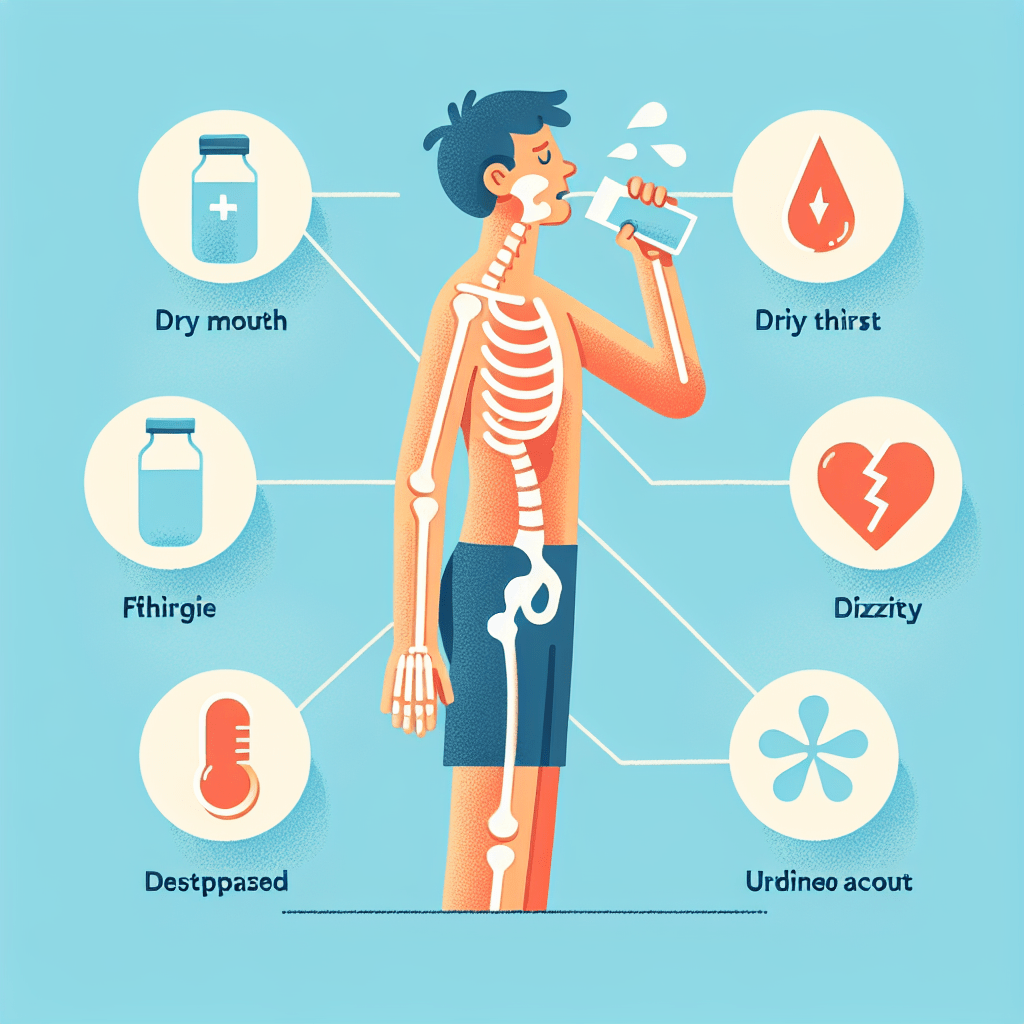Top dehydration symptoms

Understanding Dehydration: Symptoms and Prevention
Dehydration is a common health concern that can affect anyone, regardless of age, gender, or lifestyle. It occurs when the body loses more fluids than it takes in, leading to an imbalance that can disrupt normal bodily functions. This article aims to shed light on the top symptoms of dehydration, helping you stay informed and proactive in maintaining optimal hydration levels.
Recognizing the Symptoms of Dehydration
Dehydration symptoms can range from mild to severe, depending on the extent of fluid loss. It's crucial to recognize these signs early on, as prolonged dehydration can lead to serious health problems.
Mild to Moderate Dehydration Symptoms
The initial signs of dehydration are often subtle, but they can quickly escalate if not addressed promptly. Some of the most common symptoms include:
- Thirst: This is your body's first signal that it needs more water.
- Dry mouth: Lack of saliva production can lead to a parched feeling in the mouth.
- Fatigue: Dehydration can cause feelings of tiredness and lethargy.
- Decreased urine output: If you're not urinating as frequently as usual, or if your urine is dark yellow, it could be a sign of dehydration.
- Headaches: Dehydration can trigger headaches due to the brain temporarily contracting from fluid loss.
Severe Dehydration Symptoms
If left untreated, mild dehydration can progress to severe dehydration, which is a medical emergency. Symptoms of severe dehydration include:
- Dizziness or lightheadedness: Severe dehydration can lead to a drop in blood pressure, causing dizziness or fainting.
- Rapid heartbeat and breathing: As the body tries to compensate for the lack of fluids, heart rate and breathing can increase.
- Fever: Dehydration can cause a spike in body temperature.
- Unconsciousness: In extreme cases, dehydration can lead to unconsciousness or delirium.
Preventing Dehydration
Prevention is always better than cure, and this is especially true for dehydration. Here are some tips to help you stay hydrated:
- Drink plenty of water: The amount of water needed can vary depending on factors like age, sex, weight, and physical activity level, but a general rule is to drink at least eight 8-ounce glasses of water a day.
- Eat hydrating foods: Many fruits and vegetables, like watermelon and cucumbers, are high in water content.
- Replenish fluids after exercise: Physical activity leads to fluid loss through sweat, so it's important to rehydrate after working out.
"Water is the driving force of all nature." - Leonardo da Vinci
Indeed, water is essential for our survival and overall health. A study published in the European Journal of Nutrition found that even mild dehydration can impair cognitive performance, mood, and physical performance. This underscores the importance of maintaining adequate hydration levels.
Conclusion
Dehydration is a preventable health concern that can have serious consequences if left unchecked. By recognizing the symptoms early on and taking steps to stay hydrated, you can safeguard your health and wellbeing. Remember, when it comes to hydration, it's better to be proactive than reactive.
"You're not sick; you're thirsty. Don't treat thirst with medication." - Dr. F. Batmanghelidj
In summary, dehydration can manifest through various symptoms, from thirst and dry mouth to dizziness and rapid heartbeat. Preventing dehydration involves drinking plenty of water, eating hydrating foods, and replenishing fluids after exercise. As Leonardo da Vinci and Dr. F. Batmanghelidj remind us, water is a fundamental aspect of our health, and we should prioritize staying hydrated for optimal wellbeing.



